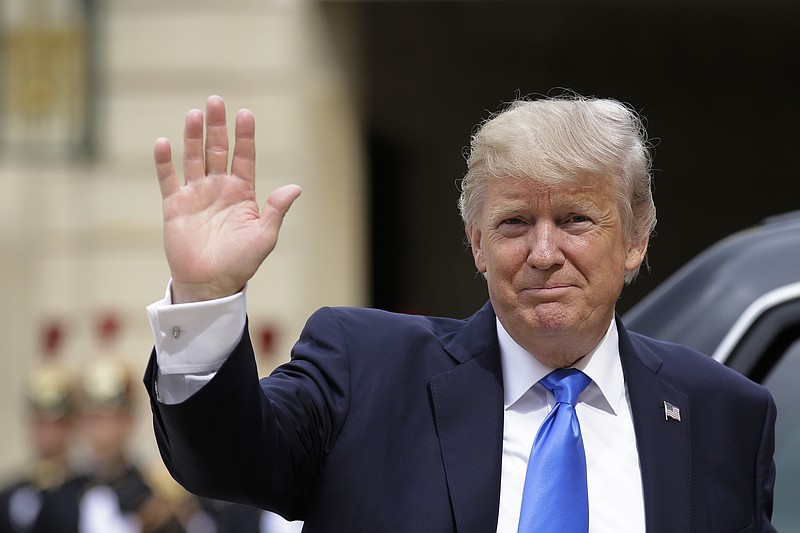WASHINGTON - "Will he tell the president 'no'?"
This question was at the heart of Sen. Dianne Feinstein's opening statement at Wednesday's confirmation hearing for Christopher Wray, President Trump's nominee as FBI director. Wray was there because the man who appointed him had fired James Comey for failing, as Feinstein put it, to "pledge his loyalty" to Trump and to soft-peddle inquiries involving Russian meddling in the 2016 campaign.
The test for Wray, Feinstein said, will be his "willingness to stand up in the face of political pressure."
There is good reason to feel uneasy about having anyone appointed by Trump lead the FBI at this moment. It is obvious to all except the willfully blind that we now have a president who observes none of the norms, rules or expectations of his office and will pressure anyone at any time if doing so serves his personal interests.
We also know beyond doubt that this team will lie, and lie, and lie again whenever the matter of Russia's exertions to elect Trump and defeat Hillary Clinton arises.
Feinstein's suggestion that telling this president "no" has become the true measure of patriotism and applies far beyond Wray. So far, Republican politicians, with a precious few exceptions, are failing this ethics exam.
The recent revelations about Donald Trump Jr. might have been the moment when Republican leaders at least started to grab their luggage in preparation for disembarking from the Trump train. After all, as Washington Post blogger Greg Sargent underscored, there is evidence that the president himself cooperated in putting out the original lies about his son's meeting with a Russian lawyer connected to the Putin regime. This may prove to be the wedge that opens up a larger examination of the president's determination to cover-up.
Yet the GOP is having trouble kicking its Trump habit.
While some Republican senators see the administration's dysfunction as a barrier to their Obamacare repeal efforts, others are hoping the Trump Jr. distraction will lower the level of scrutiny of their forthcoming second draft of a health care bill. Could scandalous political behavior provide a shield for scandalous public policy?
Vice President Mike Pence's effort to stay loyal to Trump while tip-toeing away from the latest disclosures is another sign of chaos. Marc Lotter, Pence's press secretary, attempted to draw a bright line, saying of the vice president: "He is not focused on stories about the campaign, particularly stories about the time before he joined the ticket."
But there is no bright line. This statement should widen, rather than narrow, interest in Pence's behavior because denying any relationship with Russia was central to the campaign that he was part of. It was also Pence who (in theory, at least) was in charge of vetting Michael Flynn, the national security adviser who had to resign after 24 days because of his own dissembling about Russian contacts. Pence publicly defended Flynn, and then pleaded ignorance as to what was going on.
Pence cannot be allowed to slink away from the administration whose cause he has advanced. If he's starting to see reasons for breaking with Trump, he'll have to do it outright and end his own collusion with one of the most disingenuous White Houses in our history.
The same applies to Republican leaders in Congress. When will they tell the president "no"? Feinstein's question is the right one for Wray. It should haunt Paul Ryan and Mitch McConnell, too.
